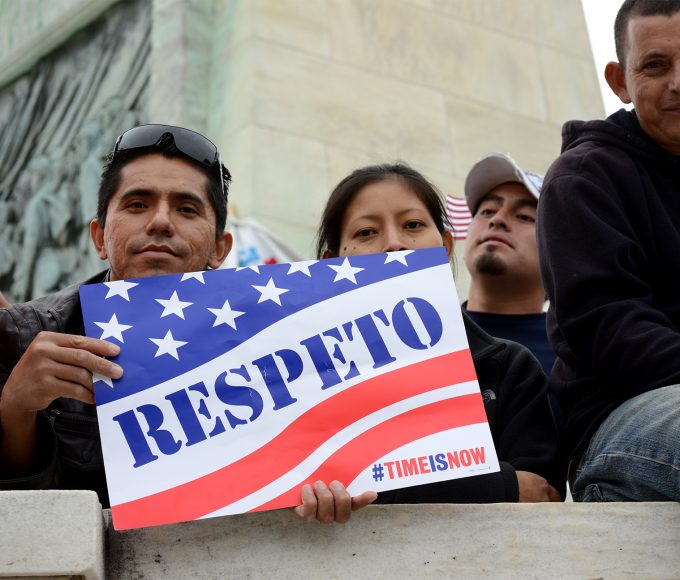Growing up in a first-generation dominican home among single women came with a certain expectation:
Mamis, tías, and madrinas collectively agreed that, although money did not guarantee a healthy relationship, a man should still be the greatest contributor to household finances. It was ironic, then, that when Chimbala ft. El Chima’s “Tu Eres Una Chapiadora” introduced the term to the Dominican diaspora in 2013, “chapiadora” was used to hypersexualize and shame women who pursued men for financial gain.
The Domini-Trini artist has been an avid speaker on behalf of chapiadoras since she first became an Instagram sensation while a stripper in New York City.
Chapiadora is Dominican slang, a direct translation for gold-digger. It is often used in reference to a (usually Dominican) woman with an hourglass figure and big “chapas” (backside) who flirts, dates, or engages with men to acquire materialistic wealth. Although the concept is far from novel, the term chapiadora is fairly new and still open to interpretation, and now Cardi B’s explosive success has seen the term become one of empowerment among many fans. The Domini-Trini artist has been an avid speaker on behalf of chapiadoras since she first became an Instagram sensation while a stripper in New York City. Featured in Messiah’s music video for “Chapi Chapi,” Cardi instructs us on how to finesse men. When you ask a man for money, start high, she tells us in Spanish, with her trademark bluntness. Ask him to give you 5,000 for a bag and if he doesn’t, she continues, then why are you with him? A few years and a record-breaking album later, Cardi continues to encourage women to date men who offer financial assistance.
“Bickenhead,” off her debut studio album Invasion of Privacy, is already a chapiadora anthem:
Pussy so good, make a nigga invest
Get a little spit, I’m gettin’ it wet
I’ll get it back up, just give me a sec’
Give him some vag’, I’m gettin’ a bag
Give him some ass, I’m gettin’ some Raf
When I’m done I make him cum, but then he comin’ off that cash.
Cardi is not only unapologetic about her sexuality, but makes no excuses for using it for her own financial gain. On her explosive hit “Bodak Yellow”, Cardi’s lyrics ( “He wanna swim with his face / I’m, like, ‘Okay.’ / I’ll let him do what he want / He buy me Yves Saint Laurent.) would make any Dominican tía and abuela gasp. And this does not come as a surprise.
As Leslie, 25, a Rutgers Law graduate explains, “in my grandfather’s generation, chapiadoras made no sense, because men were already women’s main source of income.” Many of our abuelas, due to socioeconomic and gender dynamics, were expected to financially rely on their husbands. For Leslie’s grandfather, gold-diggers are shameful women, representing independence from men while still benefiting from them. We can also argue that Leslie’s experience with the term is generational and gendered. Men often use the term chapiadora to shame women for their interests and dating choices, regardless of the fact that if we look to most Latinx urban/pop music videos made in recent history, we see women presented as sexual commodities, objectified as yet another luxury alongside cars, houses, and money.
Dominican comedian and entertainer Vicent Carmona, “El Dotol Nastra”, shares his thoughts on the YouTube video “Dile No a las Chapiadoras”. He denies being against chapiadoras, yet defines a “real” and “worthy” woman as one who caters to her man by making him feel secure, helping his business, and taking care of the household. He affirms that when a woman is actually in love, she will never expect money from a partner. Because chapiadoras are stereotyped as women with multiple plastic surgeries, he elevates women with “natural bodies” and “real hair.” Our patriarchal society normalizes shaming women for el chapeo, while simultaneously excusing men who benefit from personally, professionally, and systemically using women’s bodies to generate millions of dollars across pop culture.
In Jowell and Randy’s “La Super Chapiadora”, for example, they rap about how chapiadoras’ only interest is money, while profiting directly from the bodies of the exotic dancers they hired for the video.
As a result, the term has become one of resistance and empowerment for many Dominican women. Claudia Mendoza, 25, is the editor-in-chief of Loyal Nana, a digital platform for women’s stories, and one of the women finding power from the term. At her family gatherings, the term serves as a comedic way of describing how to level the dating field with men. Claudia argues that a “[chapiadora] means an empowered woman. I know what I bring to the table and if you want to date me, then you need to understand the terms and conditions. The women I come from have been too oppressed and repressed, so you either bring what I demand, or you won’t date me.”
She brings up a very important point about how capital has been used as a tool to oppress women. According to the National Partnership for Women and Families, on average, women make 80 cents for every dollar a man makes. But if we look deeper into those stats, we see that non-Latina black women make 63 cents and Latinas bring home 54 cents to every dollar made by a white, non-Latino man.
Claudia adds that, “because women of color have historically made less money, I should be able to demand financial back-up in my relationship, especially if I am investing myself. You have to be willing to work for what I want.”
Leslie also explains that, “if I spend about four hundred dollars on nails, hair, makeup to get dolled up for a date, it’s only fair that the man who is pursuing me can match my investment in the same way.”
In addition, el chapeo is not merely about obtaining bags, shoes, or other expensive gifts, it’s also about carving out a means of survival. In tourist areas of the Dominican Republic, such as Boca Chica and Punta Cana, seeing younger women with older white men is not unusual. Displacing communities in order to build private resorts and beaches has created a significant divide between those living in poverty and the wealthier Dominicans and foreigners who frequent the area. In addition to extreme poverty surrounding tourist areas, limited access to education and resources force many young women to seek and entertain foreigners to financially support, and sometimes even to escape, their households.
Therefore, the term chapiadora is far from apolitical. It can mean social mobility and financial independence. Although it carries a negative stigma, “chapiadora” also represents women pushing back against gender inequality. In a society where women are shamed for showing off and profiting from their bodies, chapiadoras challenge the status quo in the Dominican diaspora. And as writer, social influencer, and critic Zahira Kelly, aka bad_dominicana, puts it, “I’m not mad at chapiadoras and gold-diggers. At the end of the day, those men give ‘cuz they want to.”
Cardi B—a former dancer, and now a global, record-breaking artist in both Latin American and U.S. pop culture—embodies the chapiadora spirit. She has not shied away from discussing how el chapeo allowed her to survive and sustain herself when she was a working-class young woman in one of the most impoverished districts in the country, The Bronx.
Regardless of one’s personal opinion, we cannot deny how socioeconomics impact pop culture and influence women’s approach to el chapeo and the label, chapiadora.
Words by Danyeli Rodriguez Del Orbe

















Leave a comment